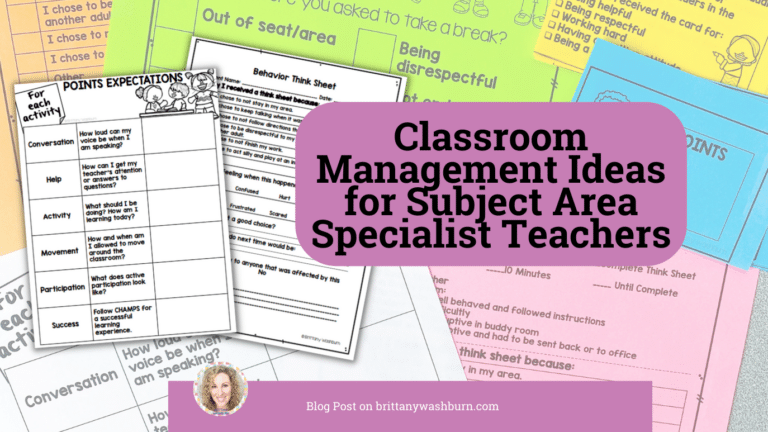Tips for Teaching Tech when it is not your Specialty

So, they asked you to cover the technology classes even though that is definitely not your specialty. You may be thinking a lot of things in regards to this development, but most likely hovering above all of them is that pesky cloud of feeling unprepared. So, how are you going to pull this off?
Step One:
Remember, they asked you to cover the technology classes, despite the fact that it is not your specialty. Being a subject matter expert is not what makes a great teacher. You are not an imposter here.
Step Two:
Come up with a plan that works for you, then take it one day at a time. Try these ideas on for size:
- Focus on the basics, like digital literacy, keyboarding, and digital citizenship.
- Check out the ISTE and CSTA Standards. You may not be ready to build your own curriculum, but giving those standards a read through will at least let you know what you’re shooting for.
- Speaking of curriculum, consider getting yourself some. Your school might even be especially receptive to allocating some funds to purchasing curriculum for you if they just hired you to teach outside of your specialty. If you need something for elementary, check out my Technology Curriculum.
- If you’re not able to purchase curriculum right now, there are still great resources out there to help lighten your load. Some of the best include:
- Connect with friends who are tech savvy. If there isn’t someone at your school, get connected with an online community like Brittany’s Facebook Group.
- Rather than picking five or six things to focus on and just scratching the surface of each, pick one or two things to start out with and cover them well. Once you feel more confident about teaching that content, you can begin to add in other topics.
- Search for online training and professional development courses to bolster your knowledge. There are plenty of courses out there!
- Instead of attempting to become an expert in snatched opportunities between periods, aim to be just two or three lessons in front of your students.
- Practice each lesson before class. Particularly if you are utilizing technology, platforms or websites you aren’t used to, this will give you a chance to work out some bugs and familiarize yourself with the layout without 20-30 pairs of eyes peering into the back of your head.
- Model being a lifelong learner. Seeing you, an authority figure, make a mistake, admit you don’t know something and take steps to learn it, or ask for help is powerful! You can even make a bounty board for things that neither you or anyone else in your class has been able to quite figure out, and let students work on solving the problem when they are done with other work.







